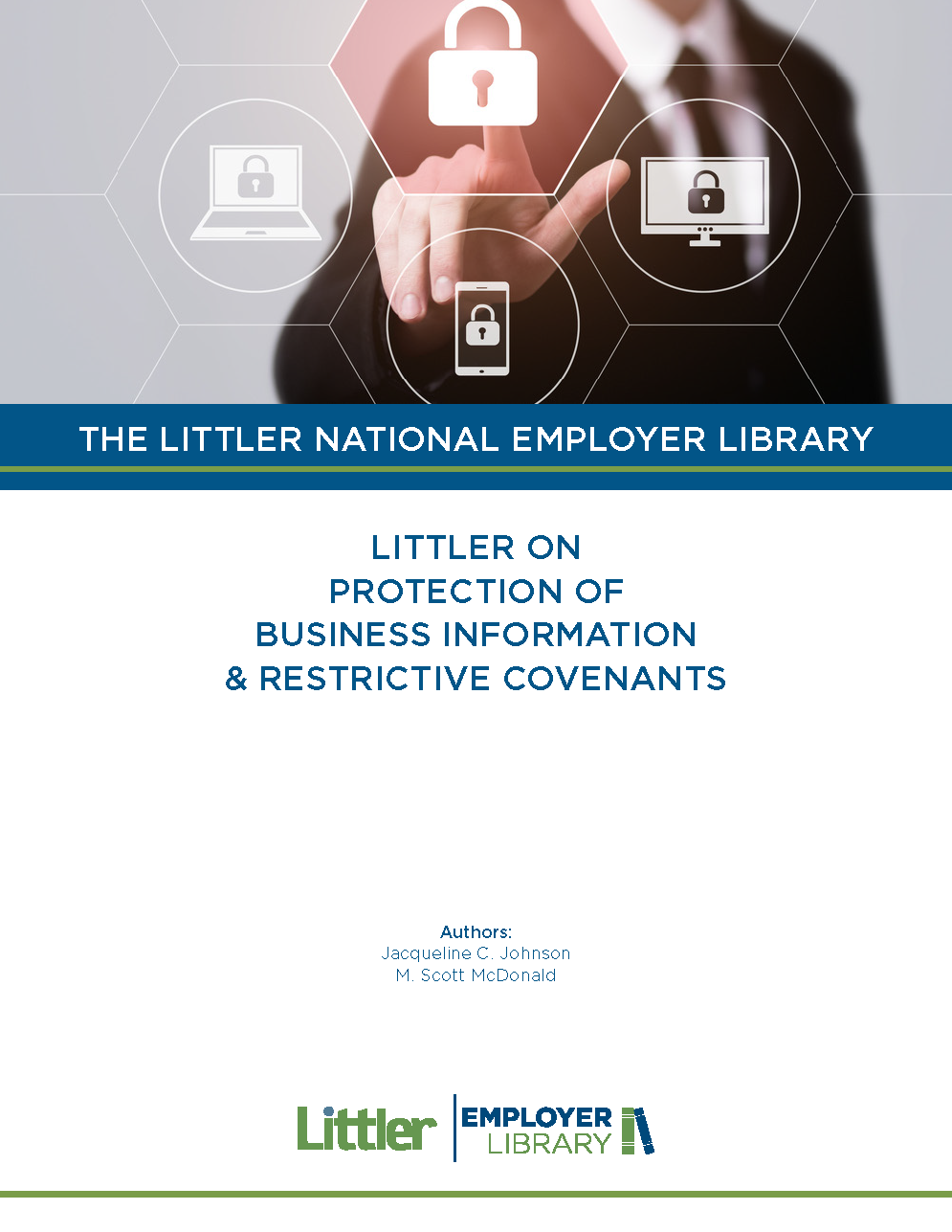Littler on Protection of Business Information & Restrictive Covenants

Scope of Discussion. A company’s ability to preserve its proprietary information, goodwill and clients is dependent upon the steps it has taken to protect those assets, including: (1) properly identifying such proprietary information or trade secrets; (2) taking reasonable steps to protect it, including maintaining security to minimize the likelihood of theft or misappropriation; and (3) having employees sign enforceable restrictive covenants (e.g., nondisclosure, noncompete and nonsolicitation agreements). On May 11, 2016, President Barack Obama signed into law the Defend Trade Secrets Act of 2016, which provides – for the first time – a federal court civil remedy for acts of trade secret misappropriation. In addition to outlining the key features of this new law, this publication also provides an overview of additional trade secret protections, types of restrictive covenants that may be used to protect proprietary information and the general enforceability of such covenants. The last section provides practical guidance and steps employers can take to protect their proprietary/confidential information. While a comprehensive review of state law is beyond the scope of this discussion, employers must also consider relevant local laws since many of these issues are state-law driven.
Call 1.866.773.2782 or click here to purchase.



